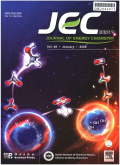- 钛学术文献服务平台 \
- 学术期刊 \
- 工业技术期刊 \
- 石油与天然气工业期刊 \
- 能源化学期刊 \
Polyimide separators for rechargeable batteries
Polyimide separators for rechargeable batteries
基本信息来源于合作网站,原文需代理用户跳转至来源网站获取
摘要:
Separators are indispensable components of modern electrochemical energy storage devices such as lithium-ion batteries (LIBs).They perform the critical function of physically separating the electrodes to prevent short-circuits while permitting the ions to pass through.While conventional separators using polypropylene (PP) and polyethylene (PE) are prone to shrinkage and melting at relatively high temperatures (150 ℃ or above) causing short circuits and thermal runaway,separators made of thermally stable polyimides (PIs) are electrochemically stable and resistant to high temperatures,and possess good mechanical strength-making them a promising solution to the safety concerns of LIBs.In this review,the research progress on PI separators for use in LIBs is summarized with a special focus on molecular design and microstructural control.In view of the significant progress in advanced chemistries beyond LIBs,recent advances in PI-based membranes for applications in lithium-sulfur,lithium-metal,and solid-state batteries are also reviewed.Finally,practical issues are also discussed along with their prospects.

推荐文章
内容分析
关键词云
关键词热度
相关文献总数
(/次)
(/年)
引文网络
引文网络
二级参考文献 (0)
共引文献 (0)
参考文献 (1)
节点文献
引证文献 (0)
同被引文献 (0)
二级引证文献 (0)
2008(1)
- 参考文献(1)
- 二级参考文献(0)
2021(0)
- 参考文献(0)
- 二级参考文献(0)
- 引证文献(0)
- 二级引证文献(0)
引文网络交叉学科
相关学者/机构
期刊影响力
能源化学
主办单位:
中国科学院大连化学物理研究所
中国科学院成都有机化学研究所
出版周期:
双月刊
ISSN:
2095-4956
CN:
10-1287/O6
开本:
出版地:
大连市中山路457号
邮发代号:
创刊时间:
语种:
eng
出版文献量(篇)
2804
总下载数(次)
0
期刊文献
相关文献
推荐文献
- 期刊分类
- 期刊(年)
- 期刊(期)
- 期刊推荐
一般工业技术
交通运输
军事科技
冶金工业
动力工程
化学工业
原子能技术
大学学报
建筑科学
无线电电子学与电信技术
机械与仪表工业
水利工程
环境科学与安全科学
电工技术
石油与天然气工业
矿业工程
自动化技术与计算机技术
航空航天
轻工业与手工业
金属学与金属工艺
能源化学2022
能源化学2021
能源化学2020
能源化学2019
能源化学2018
能源化学2017
能源化学2016
能源化学2015
能源化学2014
能源化学2013
能源化学2012
能源化学2011
能源化学2010
能源化学2009
能源化学2008
能源化学2007
能源化学2006
能源化学2005
能源化学2004
能源化学2003
能源化学2002
能源化学2001
能源化学2021年第9期
能源化学2021年第8期
能源化学2021年第7期
能源化学2021年第6期
能源化学2021年第5期
能源化学2021年第4期
能源化学2021年第3期
能源化学2021年第2期
能源化学2021年第12期
能源化学2021年第1期

 免费查重
免费查重










